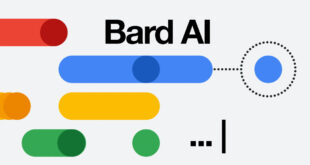Orangutans spontaneously make hook tools out of a straight piece of wire, using them to ‘fish’ for food.
Laumer et al show that orangutans can spontaneously innovate a hook tool out of a straight piece of wire to solve a novel problem. Image credit: Laumer et al, doi: 10.1038/s41598-018-34607-0.
Orangutans are among the most intelligent primates. They have human-like long-term memory, routinely use a variety of sophisticated tools in the wild and construct elaborate sleeping nests each night from foliage and branches.
Today, they can only be found in the rainforests of Sumatra and Borneo. Like all four great ape species, they are listed as ‘critically endangered.’
“Habitat loss due to extensive palm-oil production, illegal wildlife trade and poaching are the major threats. Palm oil is the most widely used vegetable oil in the world. As long as there is a demand for palm oil and consumers keep buying products that contain palm oil, the palm industry thrives,” said Dr. Isabelle Laumer, a researcher at the University of Vienna, Austria, and lead author of a paper published in the journal Scientific Reports.
“According to a 2007 survey by the U.N. Environment Program (UNEP) orangutans will be extinct in the wild within two decades if current deforestation trends continue.”
“The hook-bending task has become a benchmark paradigm to test tool innovation abilities in comparative psychology,” said co-author Dr. Alice Auersperg, a scientist at the University of Veterinary Medicine in Vienna, Austria.
“Considering the speed of their hook innovation, it seems that orangutans actively invented a solution to this problem rather than applying routined behaviors.”
“In the study, we confronted Sumatran orangutans (Pongo abelii) with a vertical tube containing a reward basket with a handle and a straight piece of wire and, in a second task, with a horizontal tube containing a reward at its center and a piece of wire that was bent at 90 degrees,” Dr. Laumer explained.
“Retrieving the reward from the vertical tube thus required the orangutans to bent a hook into the wire to fish the basket out of the tube. The horizontal tube in turn required the apes to unbent the bent piece of wire in order to make it long enough to push the food out of the tube.”
Several orangutans mastered the hook bending task and the unbending task. Two orangutans even solved both tasks within the first minutes of the very first trial.
“The orangutans mostly bent the hooks directly with their teeth and mouth while keeping the rest of the tool straight,” Dr. Laumer said.
“Thereafter they immediately inserted it in correct orientation, hooked the handle and pulled the basket up.”
“Finding this capacity in one of our closest relatives is astonishing,” said co-author Dr. Josep Call, a researcher at the University of St Andrews, UK.
“In human evolution hook tools appear relatively late. Fish hooks and harpoon-like, curved objects date back only approximately 16,000-60,000 years.”
“Although New Caledonian crows use hooks with regularity, there are a few observations of wild apes, such as chimpanzees and orangutans, that use previously detached branches to catch and retrieve out-of-reach branches for locomotion in the canopy. These branch-hauling tools might represent one of the earliest and simplest raking tools used and made by great apes and our ancestors.”
_____
I.B. Laumer et al. 2018. Spontaneous innovation of hook-bending and unbending in orangutans (Pongo abelii). Scientific Reports 8, article number: 16518; doi: 10.1038/s41598-018-34607-0
 #Bizwhiznetwork.com Innovation ΛI |Technology News
#Bizwhiznetwork.com Innovation ΛI |Technology News




